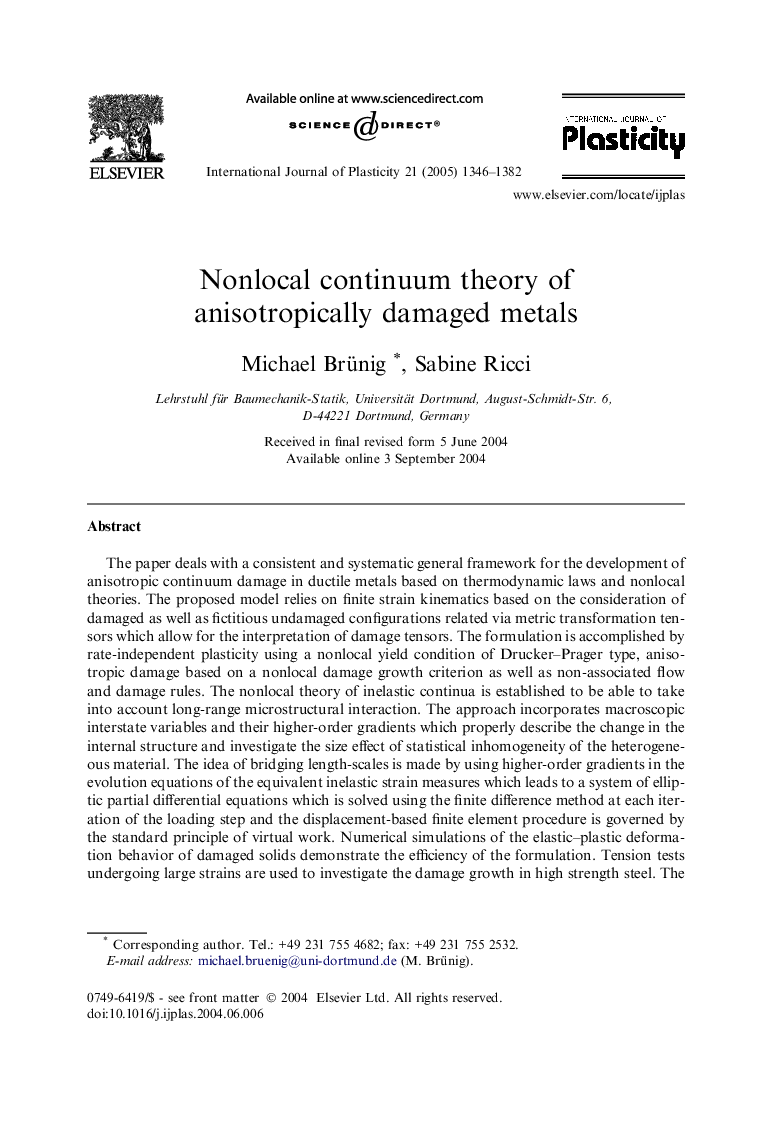| Article ID | Journal | Published Year | Pages | File Type |
|---|---|---|---|---|
| 9707215 | International Journal of Plasticity | 2005 | 37 Pages |
Abstract
The paper deals with a consistent and systematic general framework for the development of anisotropic continuum damage in ductile metals based on thermodynamic laws and nonlocal theories. The proposed model relies on finite strain kinematics based on the consideration of damaged as well as fictitious undamaged configurations related via metric transformation tensors which allow for the interpretation of damage tensors. The formulation is accomplished by rate-independent plasticity using a nonlocal yield condition of Drucker-Prager type, anisotropic damage based on a nonlocal damage growth criterion as well as non-associated flow and damage rules. The nonlocal theory of inelastic continua is established to be able to take into account long-range microstructural interaction. The approach incorporates macroscopic interstate variables and their higher-order gradients which properly describe the change in the internal structure and investigate the size effect of statistical inhomogeneity of the heterogeneous material. The idea of bridging length-scales is made by using higher-order gradients in the evolution equations of the equivalent inelastic strain measures which leads to a system of elliptic partial differential equations which is solved using the finite difference method at each iteration of the loading step and the displacement-based finite element procedure is governed by the standard principle of virtual work. Numerical simulations of the elastic-plastic deformation behavior of damaged solids demonstrate the efficiency of the formulation. Tension tests undergoing large strains are used to investigate the damage growth in high strength steel. The influence of various model parameters on the prediction of the deformation and localization of ductile metals is discussed.
Related Topics
Physical Sciences and Engineering
Engineering
Mechanical Engineering
Authors
Michael Brünig, Sabine Ricci,
